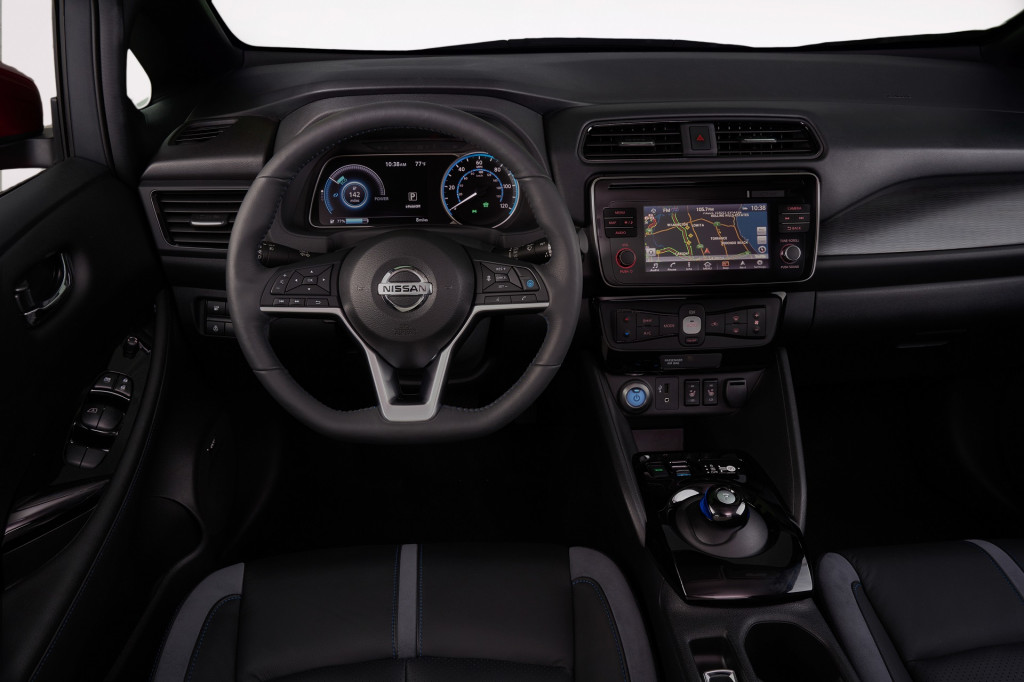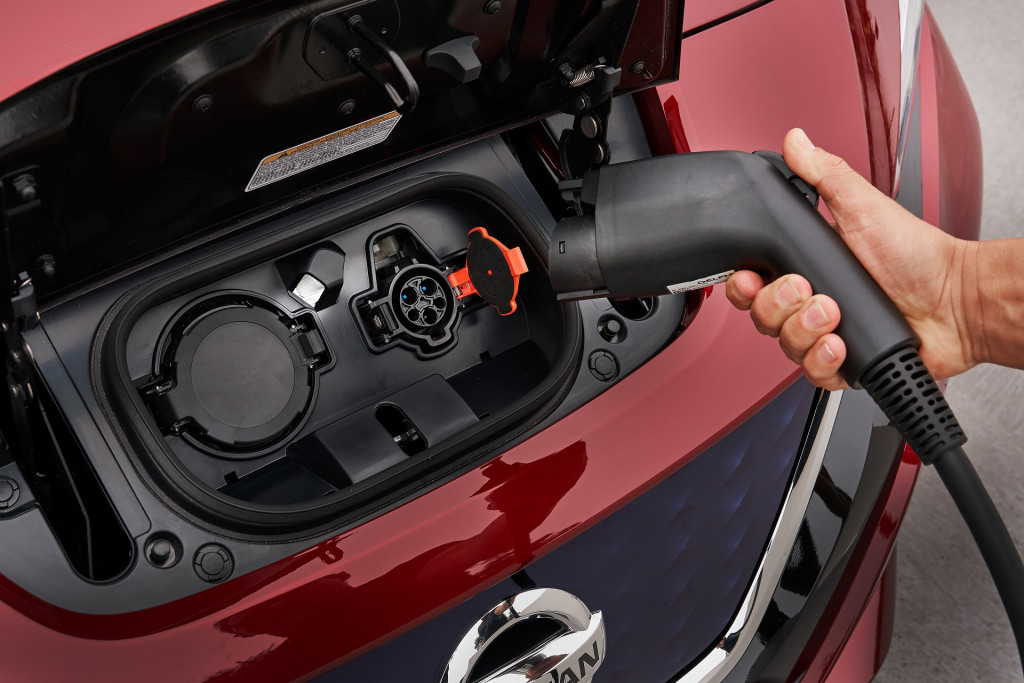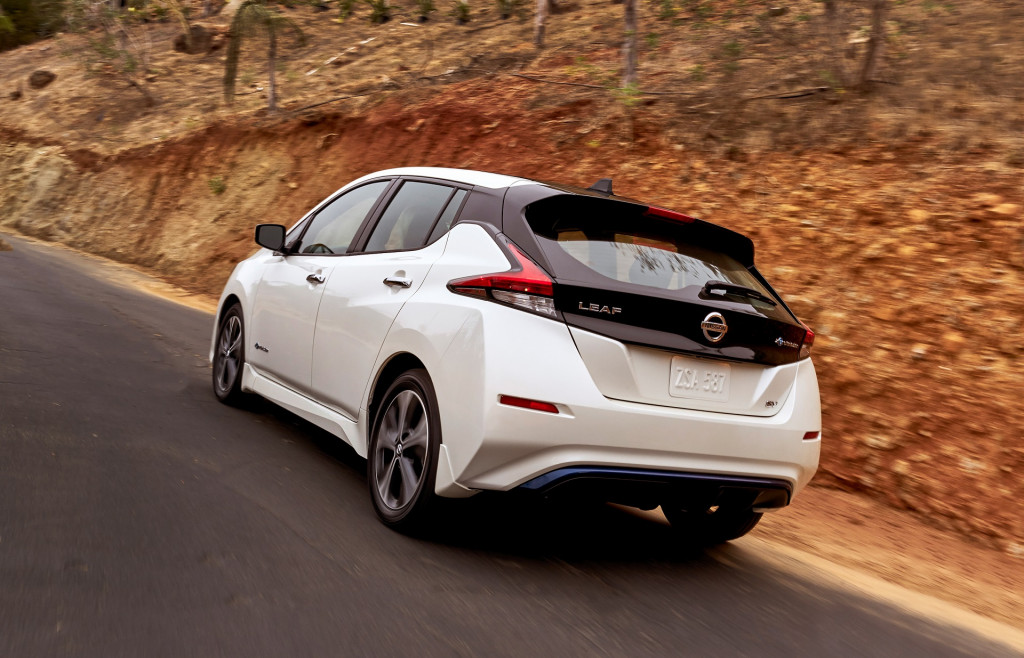With the 2018 Nissan Leaf due to arrive at U.S. dealers in four or five months, next year is shaping up to be a very interesting test of what buyers want in battery-electric cars.
Much of the focus has been on the new car's range rating, projected to be 150 miles combined when it's confirmed by the EPA.
The new Leaf enters what carmakers call "white space" in the market: a place where no other maker offers a vehicle.
DON'T MISS: Goal for 2018 Nissan Leaf: double sales of new electric car
Today, with the exception of the tiny Smart ForTwo Electric Drive, most all-electric cars on the market for 2017 and 2018 offer 90 to 125 miles of range. Call them the "short-range" electric cars.
That's up from 62 to 84 miles for the first round of mass-market cars, with Tesla coming in at the high end offering 200 miles or more for $65,000 or more.
Then, last year, the 2017 Chevrolet Bolt EV launched with a 238-mile range rating, and the Tesla Model 3—with ratings of 220 miles and 310 miles—is expected to join it in mass production by the end of this year. Call them the "long-range" electric cars.

2018 Nissan Leaf
A version of the Leaf with 200 miles or more of range will also join Nissan's lineup as a 2019 model, with a higher price and a more powerful motor.
So now we have close to a dozen electric cars in the 90-to-125-mile group, and the Chevy Bolt EV plus the Model 3 at more than 200 miles for 2018 (though Model 3 availability will likely be restricted to those buyers who put in their reservations a year or more ago).
The 2018 Nissan Leaf, meanwhile, sits right in the middle, at 150 miles.
CHECK OUT: Nine things you should know about the 2018 Nissan Leaf electric car
So does the 2018 Leaf pioneer a new "mid-range" electric car category?
A recent article on Medium suggests that Nissan has made a smart choice, and author Brian Kent says he's proud of Nissan for its "unwillingness to play the ridiculous 'range' game."
There's no definitive answer to the question, of course: The definition of what's "enough" range varies with each driver.

2018 Nissan Leaf
Most drivers think they cover far more miles than they actually do, and it's been pointed out for years that an 84-mile range is adequate for more than 80 percent of all trips taken in the U.S.
But sustained highway speeds, air-conditioning use, and especially sub-freezing winter weather can subtract up to 40 percent of that rated range.
And pretty much any buyer will shy away from a vehicle whose effective range is down to 50 miles.
READ THIS: 2018 Nissan Leaf electric-car prototype driven: first impressions
Several years ago, Green Car Reports published an article suggesting that while the 73-mile range rating of the 2011 and 2012 Leafs was clearly not enough for U.S. buyers, a number like 140 or 150 miles might well be.
It wasn't based on surveys or other data, just on conversations with people who knew very little or nothing about battery-electric cars but were at least open to thinking about them as a possible purchase option.
Fast forward seven years, and here we are, with a new electric car coming on the market with exactly that range, and a very aggressive base price to boot ($30,875 including delivery).

2018 Nissan Leaf
Over the next two years, the market will tell us whether the Bolt EV's extra 88 miles of range is worth the $6,800 price boost.
Those prices are just the starting point, of course, with manufacturer discounts and federal, state, local, and corporate tax credits, rebates, and other incentives coming into play.
But we should get some useful data to see how many Bolt EVs Chevrolet will sell now that it's on sale throughout the U.S., especially in light of Nissan's goal to double sales of the new Leaf over the old one.
We note, however, that author Brian Kent says that while Nissan is back in his good graces, he's not giving up his Model 3 reservation just yet. Hmmmmmmm.
_______________________________________













